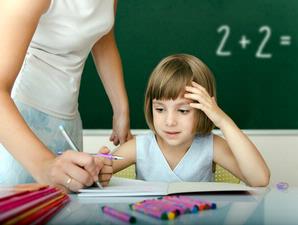Spontaneous, cheerful, no burden, and far away of stress! When upset or sad, they would cry for a while and soon recovered to joy. That's the children's world in the eyes of adults. That view is inherent in the minds of parents and considers stress belongs only to adults.
Stress is a response to a variety of factors or situations that create negative emotions,physical changes, as well as a combination of physical and emotional changes. This is anunpleasant condition that can be experienced by both adults and child.
In certain circumstances, stress can actually be a motivator. For example, when the fear offailing the exam, we are actually encouraged to learn optimally. However, severe stress willsomehow interfere with life, activity, and health.
All people have a natural response to stress which is a form of survival. Children also has its own way of coping with stress. They learn to respond to stress with the experience andobservations. There is to be aggressive, there are behaving recklessly, some arewithdrawn.
Causes and symptoms
Stress in children is often caused by things that are considered trivial by the parents.
Children's responses to certain situations can be vary. There are situations that are considered stressful for children who have one, but not for another child.
However, stress in children is usually caused by:
- The new situation is unfamiliar or unexpected.
- The expectations are fulfilled uncertain.
- Anticipation of something unpleasant (pain and so on).
- Fear of failure (or learning achievement in the association).
- Entering an important stage in the life (leaving the elementary school kindergarten entry, and etc.).
When experiencing stress, children may not know that they experience stress.
Therefore,parents are expected to be alert to the possibility of children have serious stress, which can be recognized from symptoms such as:
- Physical symptoms: headaches, upset stomach or heartburn, heartburn, sleep disturbances, nightmares, bed wetting, stuttering speech, loss of appetite or other changes in eating habits, and other physical symptoms without physical pain.
- Emotional or behavioral symptoms: anxiety, restlessness, can not relax, afraid ofsomething (fear of the dark, afraid of being alone, fear of strangers, and etc.), impairedconcentration studied, clung to their parents or surrogate parents, angry, crying, fussy, notcan be control your emotions, aggressive behavior, stubborn, regression (again behave likechildhood), not willing to participate in family or school activities.
